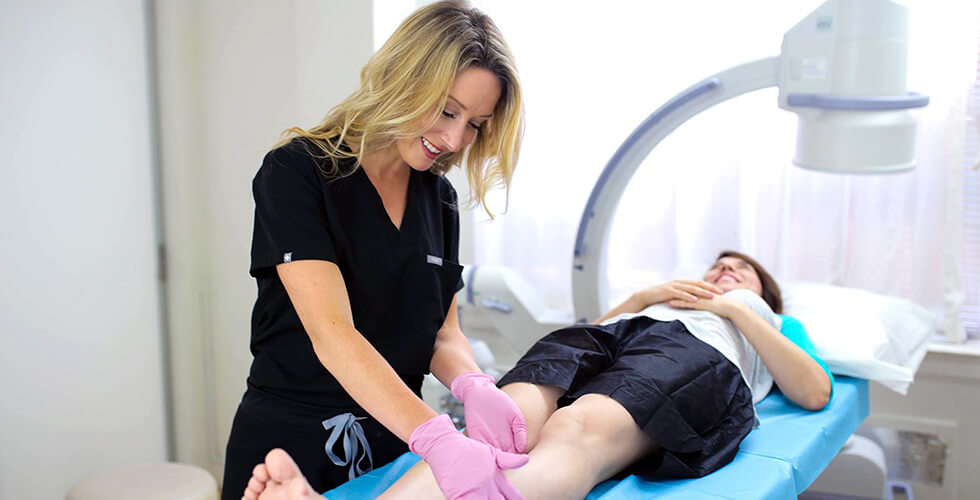If you’ve ever asked, “How can I get rid of varicose veins without surgery?”—you’re not alone. Millions of people struggle with this condition, often caused by weakened or damaged vein walls and valves. While medical procedures like laser therapy or vein stripping are effective, many prefer to explore non-invasive options first. The good news? Yes, lifestyle changes can play a significant role in managing and even reducing varicose veins.
Though lifestyle changes may not completely eliminate varicose veins, they can definitely ease symptoms, prevent progression, and improve overall vascular health. This is especially helpful when combined with guidance from a vein treatment specialist.
What exactly causes varicose veins?
Before we dive into lifestyle modifications, it’s essential to understand the root cause of varicose veins. These enlarged, twisted veins usually occur when the one-way valves inside your veins fail. When blood flows backward and pools, the veins swell and become visible—typically in the legs.
Factors such as aging, genetics, pregnancy, obesity, and prolonged standing or sitting contribute to varicose vein formation. Once they appear, these veins can cause aching, throbbing, and fatigue in the legs. Left untreated, they may lead to more severe complications like ulcers or blood clots.
Can exercise help reduce varicose veins?
One of the most effective lifestyle changes to manage varicose veins is regular physical activity. Movement improves blood circulation and helps pump blood back toward the heart, especially from the lower limbs.
Walking, swimming, cycling, and yoga are great low-impact exercises that engage the calf muscles—the body’s natural venous pump. Even simple activities like taking short walking breaks during the day or stretching your legs can improve circulation and reduce discomfort.
A vein treatment specialist often recommends a personalized exercise plan tailored to your condition, making this a safe and effective first step toward symptom relief.
How does diet impact varicose veins?
Believe it or not, your diet plays a major role in vascular health. A high-fiber, low-salt diet can help reduce the pressure on your veins by preventing constipation and water retention—both of which strain your circulatory system.
Here are some dietary tips that can benefit those with varicose veins:
- Eat more fiber: Whole grains, fruits, and vegetables help improve digestion and reduce vein pressure.
- Reduce salt intake: Excess sodium causes water retention and swelling in the legs.
- Stay hydrated: Drinking plenty of water supports overall vein function.
- Add flavonoid-rich foods: Berries, citrus fruits, apples, onions, and spinach can help strengthen blood vessels and improve circulation.
Diet alone won’t eliminate varicose veins, but when combined with other changes, it can significantly lessen your symptoms.
Can losing weight reduce varicose vein symptoms?
Absolutely. Weight loss is a key lifestyle change if you’re overweight and experiencing varicose veins. Excess body weight places added pressure on your veins, making it harder for blood to flow back to the heart.
Even moderate weight loss can improve circulation, relieve pressure on veins, and reduce the appearance of varicose veins. If you’re wondering, “How can I get rid of varicose veins without surgery?”—dropping a few pounds may be one of the most effective answers.
Do compression stockings really work?
Compression therapy is often recommended by a vein treatment specialist as a non-surgical approach to managing symptoms. Compression stockings apply gentle pressure to the legs, supporting the veins and promoting better blood flow.
Wearing them regularly can reduce swelling, ease pain, and slow down the progression of varicose veins. While they won’t eliminate the veins, they’re highly effective at controlling daily discomfort.
Is proper posture important?
Yes—your posture has a major effect on your venous health. If your job involves long periods of standing or sitting, it’s essential to take frequent breaks to stretch and move around. Avoid crossing your legs when sitting, and try to elevate your legs whenever possible to encourage blood flow.
Simple adjustments like using a footrest or switching positions frequently can make a noticeable difference in circulation and comfort.
Can you manage varicose veins during pregnancy?
Pregnancy is a common time when varicose veins develop due to hormonal changes and increased blood volume. If you’re pregnant and wondering, “How can I get rid of varicose veins without surgery?”, lifestyle management is your best bet.
Walking daily, wearing maternity compression stockings, sleeping on your left side, and elevating your legs can all help minimize discomfort and reduce vein swelling during pregnancy.
Should I consult a vein treatment specialist?
Yes. Even if you’re focusing on natural and lifestyle-based treatments, it’s wise to see a vein treatment specialist for a complete diagnosis and personalized plan. They can help determine the severity of your condition, monitor your progress, and offer additional options if needed.
Some specialists may suggest non-surgical medical treatments such as:
- Sclerotherapy (injecting solution to close the vein)
- Endovenous laser therapy (EVLT)
- Radiofrequency ablation
These are minimally invasive procedures that can be paired with lifestyle changes for optimal results.
How can I make lasting changes?
Sticking to healthy habits can be challenging, but here are some ways to stay on track:
- Set reminders to stand up and walk every hour
- Prepare weekly meal plans that focus on vein-healthy foods
- Track your physical activity using fitness apps
- Keep a symptom journal to monitor your progress
Small, consistent efforts will lead to long-term improvements in your vascular health.
Final thoughts: Can lifestyle changes replace surgery?
In some cases, yes—lifestyle changes can significantly reduce symptoms and slow the progression of varicose veins, especially when the condition is mild to moderate. However, they may not completely eliminate the veins, particularly if they are large or causing severe discomfort.
Still, if you’ve ever asked, “How can I get rid of varicose veins without surgery?”—lifestyle management is a smart and safe starting point. And when you work closely with a vein treatment specialist, you can find a plan that works for your unique needs, possibly avoiding surgery altogether.
